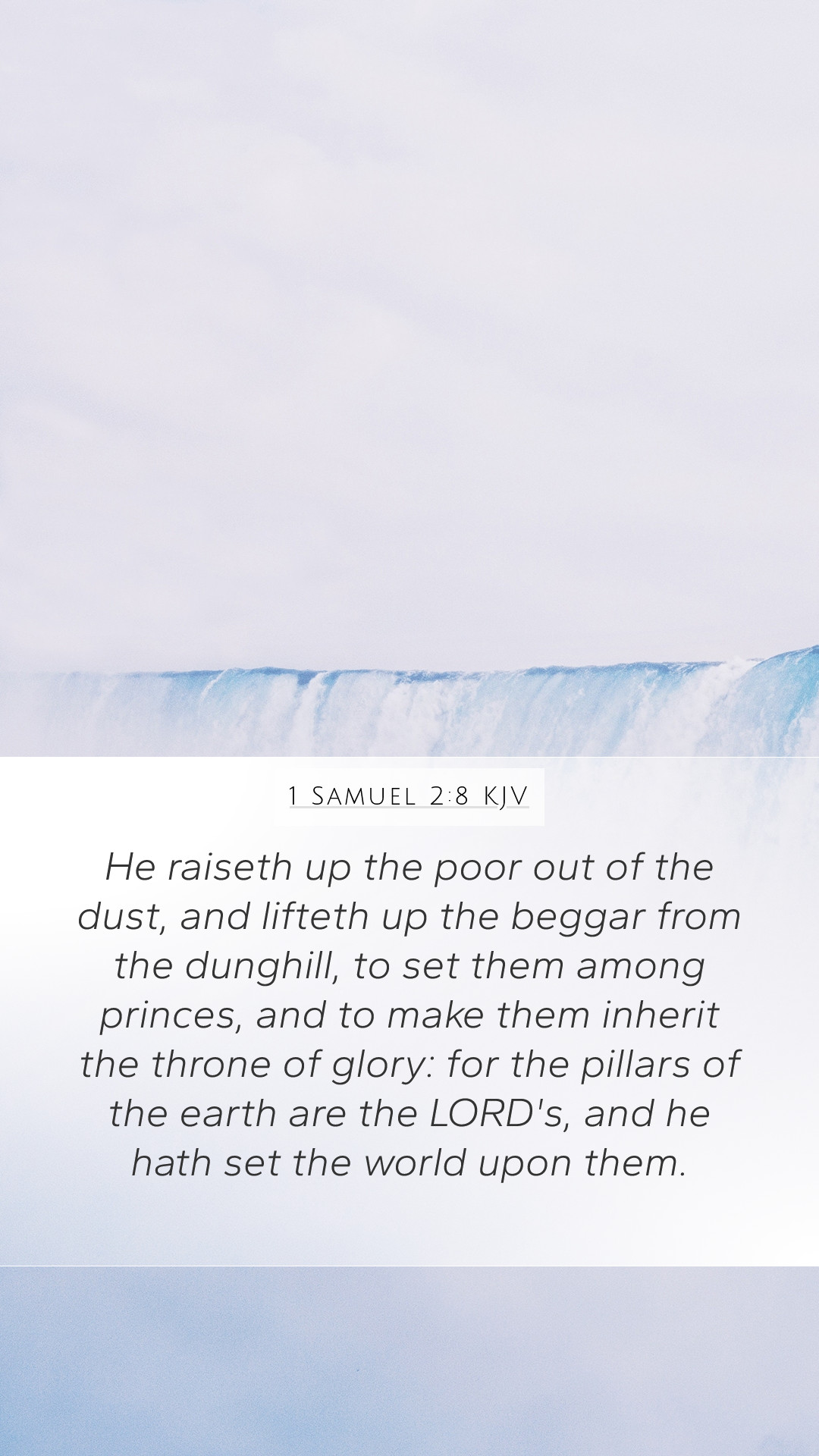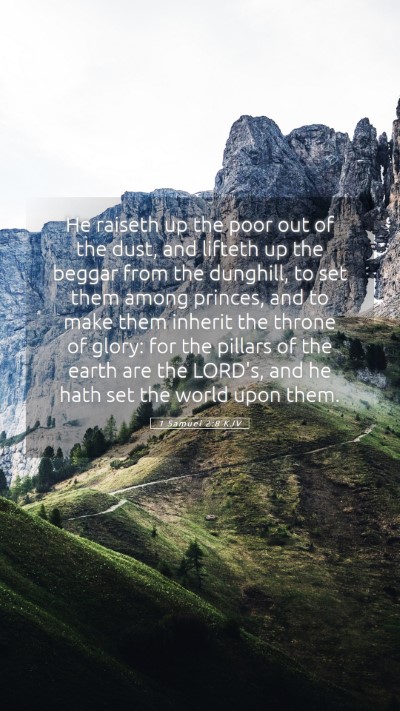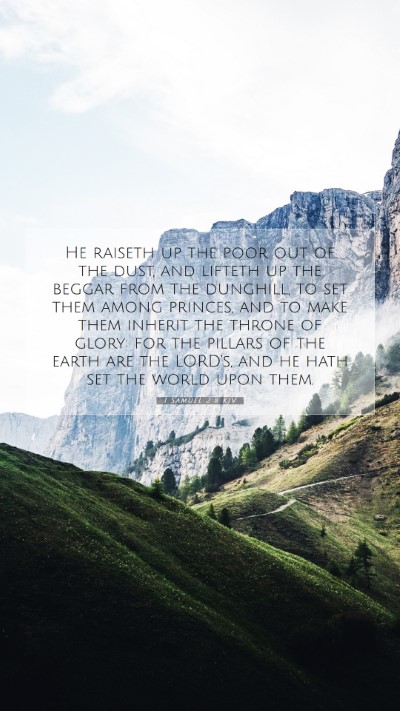Bible Verse: 1 Samuel 2:8
Verse Text: "He raises up the poor out of the dust, and lifts up the beggar from the dung hill, to set them among princes, and to make them inherit the throne of glory: for the pillars of the earth are the Lord's, and he hath set the world upon them."
Overview of 1 Samuel 2:8:
This verse is part of Hannah's prayer, a declaration of God's sovereignty and His ability to elevate those who are humble and lowly. It serves as a powerful reminder of God's grace and the divine reversal of fortunes.
-
Matthew Henry's Commentary:
Henry emphasizes God's power to uplift the destitute, illustrating a theme of divine providence. He notes that God is in control of societal structures and has the ability to reverse the states of individuals, lifting the humble to positions of honor. This reinforces the biblical principle that God's kingdom often operates contrary to worldly expectations.
-
Albert Barnes' Notes:
Barnes elaborates on the metaphorical implications of "dust" and "dung hill," highlighting the spiritual significance of being raised from a state of despair. He points out that God’s initiative transforms the lives of the marginalized, providing hope and purpose. This act of elevation illustrates not just physical restoration, but spiritual rebirth, aligning with themes of redemption found throughout Scripture.
-
Adam Clarke's Commentary:
Clarke provides a historical context, explaining how Hannah’s personal experience reflects a larger divine principle. He affirms that this promise extends beyond Hannah to all who find themselves in lowly conditions. Clarke suggests that this elevation to ‘princes’ signifies participation in God’s kingdom, asserting that humility before God precedes exaltation.
Meaning of Bible Verses: 1 Samuel 2:8 illustrates the sacred economy of God, where He exalts the humble and provides a stark contrast to human pride. This serves as a powerful encouragement for those who feel insignificant or overlooked, emphasizing that God sees and values the lowly.
Understanding Scripture: In understanding this verse, one gains insight into the character of God as a defender of the marginalized. It assures believers that no circumstance is beyond God's ability to transform, prompting reflection on one’s own trust in God’s intervention.
Practical Application: For modern readers, this verse can inspire action within our communities. Those involved in charity, justice work, or community support are living out the principles encapsulated in this verse, actively lifting others from their lowly circumstances.
Cross References:
- Psalm 113:7-8 - "He raises the poor out of the dust and lifts the needy from the ash heap."
- James 4:10 - "Humble yourselves before the Lord, and he will lift you up."
- Luke 1:52 - "He has brought down the mighty from their thrones and exalted those of humble estate."
Conclusion: 1 Samuel 2:8 serves as a profound reminder of God's sovereignty and grace. It offers hope to the downtrodden and challenges the prideful, manifesting a divine reality where the last shall be first and the first shall be last. Understanding such verses through comprehensive scripture analysis invites deeper engagement and meaningful discussions in Bible study groups, enhancing one's study resources and tools.
Encouragement for Further Study: For those looking to delve further into the depths of Bible verse explanations, engaging with commentaries such as those by Matthew Henry, Albert Barnes, and Adam Clarke can enrich the understanding of difficult Bible passages. Online Bible study platforms and resources provide avenues to explore these interpretations and their applications in daily life.


